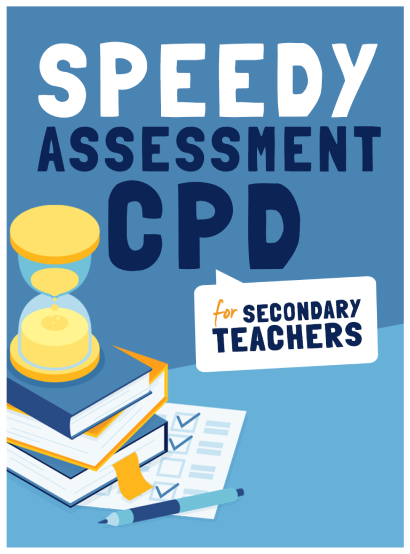5 Quick Vocabulary Ideas to Help GCSE Students before Exams

Support your students towards better language use, with the help of our resident word-wizard, Alex Quigley…

- by Teachwire

As our GCSE pupils make their way through their exams, we nudge and encourage them to take those crucial final steps toward revision and ultimate success.
Of course, as teachers, we are already evaluating and analysing our own efforts and picking over the remnants of our curriculum plans.
As we ask pertinent questions like ‘what topics worked well?’, we should also consider once more, ‘how well are we teaching the vital academic vocabulary our pupils need?’
1 | Try this today: Cumulative vocabulary quizzing’
One of the most well-established research findings in education – labelled the ‘testing effect’ – is that taking a test can aid the memory of the content that is tested.
Regular low-stakes quizzes can represent a useful tool for consolidating vocabulary knowledge – one that is low stress and low effort for teachers and pupils.
Our students need to repeatedly revisit and consolidate terminology if they are to grasp a deep knowledge of a word or phrase.
Quizzing then needs to be cumulative, far beyond when we first study curriculum content, with vocabulary appearing in three or more quizzes, over an increasingly spaced period of time.
2 | One word at a time
The word ‘scale’ is polysemous – that is to say, it has multiple meanings. It also holds value for our learners because it appears in many different subject domains, such as maths, music, geography, design technology etc.
In old Norse, ‘scal’ means ‘bowl’, hence the ‘scales of justice’ and the measuring concept we connect with ‘scale’.
However, the scale in music derives from the Latin ‘scale’, meaning ladder. These Latin roots appear in the spelling of ‘descend’, ‘ascend’ and ‘condescend’.
Meanwhile, fish scales come from the Old English ‘scell’, meaning ‘shell’. Let’s help our pupils scale the challenging ladder of polysemous vocabulary!
3 | I don’t think it means what you think it means…
If you hear the word ‘cracking’ in the classroom, you may well assume it is being deployed to praise some particularly good work. For a chemistry teacher, however, it is a different story altogether.
In chemistry, ‘cracking’ defines a precise reaction involving saturated hydrocarbon molecules – er, obviously! It is a process important to understand for the production of petrol and plastics.
Sometimes, pupils can be confused by such clashing meanings. Teachers using common English idioms, such as ‘cracking’ as praise, can actually trip them up, as they muddle different word meanings and then struggle to grasp the academic meaning.
4 | Cracking the academic code
What does good academic writing look like and sound like? Most teachers can spot it when they see it. It uses sophisticated academic words, it makes sense, and proves organised and fluent.
One of the subtle features of the ‘academic code’ is the fluency that comes from writers using ‘cohesive ties’.
These are the words that neatly connect up sentences so that entire paragraphs are well sequenced and arguments etc. make sense.
Sentence starters like ‘also’, ‘similarly’ and ‘equally’ all offer clear, fluid connecting ties between sentences.
We can get pupils to review their writing by highlighting these ‘cohesive ties’, improving them, and ensuring they have used a diverse range of them.
5 | One for…mathematicians
Decimals are an integral aspect of mathematics, gaining their own GCSE topic, but how well do we know the roots of this familiar term?
The word ‘decimal’ derives from Latin – ‘decimas’, meaning ‘tenth’. The prefix ‘dec’ is familiar enough in words like ‘decade’ and ‘decathlon’.
Problematically, ‘December’ was originally the 10th month in the Roman calendar (which began in March).
In the past, the related word ‘decimate’ would describe a tithe or a tax, but perhaps most interestingly it describes the gruesome punishment for mutinous Roman legions, where one in every 10 soldiers would be brutally beaten to death!
Do they know?
Many of our trickiest words to spell are so because of their ancient Latin roots, like the ‘sc’ in ‘descend’ or the ‘b’ in ‘debt’.
Alex Quigley is the author of Closing the Vocabulary Gap. He also works for the Education Endowment Foundations as Senior Associate supporting teachers to engage with research evidence.











